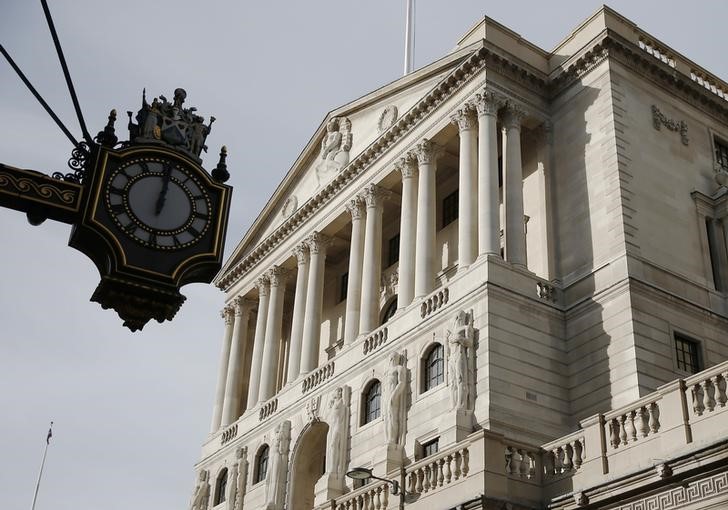(Bloomberg) -- The Bank of England’s new chief economist says the current spike in U.K. inflation looks set to last longer than originally thought, in comments that may boost speculation that interest rates may be about to rise.
In his first public remarks since taking up the role, Huw Pill said that risks to the economy are far more two-sided than they have been for some time, and as a result policy decisions will become more finely balanced. U.K. government bonds briefly dipped after the questionnaire was published, boosting yields.
Pill’s view, contained in written responses to questions from Parliament’s Treasury Committee, come amid growing bets that spiking inflation will force the BOE to hike interest rates in the near future. A flurry of news in recent days has undercut the the BOE’s view that much of the jump in prices will prove transitory. Markets are almost fully pricing in a 15-basis-point rate rise by the end of the year.
“In my view, that balance of risks is currently shifting towards great concerns about the inflation outlook, as the current strength of inflation looks set to prove more long lasting than originally anticipated,” Pill wrote.
Pill, who was appointed last month, voted to keep rates unchanged at the bank’s September meeting. Officials at the time raised the prospect of hiking interest rates as soon as November to contain a surge in inflation.
Still, his thoughts on the forces shaping the likely path for borrowing costs have largely remained a mystery until now. Analysis from Bloomberg Economics placed him in the middle of the range views on the nine-member Monetary Policy Committee.
Pill’s comments weren’t all hawkish. He also noted that the U.K. economy is yet to return to it’s pre-virus level, leaving potential supply available.
“Monetary policy should seek to support a level of activity that exploits that potential as fully as possible,” he wrote.
In a 16-page questionnaire, Pill also said:
- He plans “to re-focus efforts towards deepening understanding of the policy tools and frameworks that have emerged from the financial crisis and its aftermath.” The test of that policy questions raised about the BOE’s policy armory, including from the House of Lords Economic Affairs Committee, to be convincingly addressed
- He thinks the “the strength and success” of the BOE’s framework “may make it difficult to challenge orthodoxy. Alternative views and approaches may be difficult to encompass within the existing machinery, or have to be shoe-horned into it.”
- He can see arguments for involving the financial policy committee in the governance of quantitative easing.
